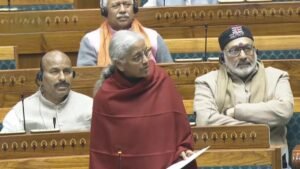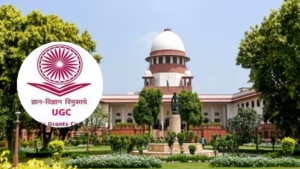Major travel plans getting thrown into chaos across northern India today. The Indian government has taken swift action to pause commercial flight operations in several states due to an ongoing military exercise called Operation Sindoor.
This sudden change affects thousands of daily travelers who rely on these vital transportation links for business and personal needs. Aviation experts suggest this temporary measure could extend beyond initial estimates if military goals aren’t quickly reached.
What Regions Are Affected?
The flight suspension spans major cities across northern India’s popular tourist and business hubs. These areas include:
- Delhi – The national capital region
- Chandigarh – Gateway to Himalayan states
- Amritsar – Home to the Golden Temple
- Lucknow – Capital of Uttar Pradesh
You should check with your airline immediately if you’ve booked travel to these northern destinations within the coming days. Many carriers have begun offering free rebooking options for those whose travel plans must shift during this period.
Military Exercise Details
Operation Sindoor represents one of India’s largest military drills focused on border security measures in recent years. Defense officials claim these annual exercises maintain combat readiness while testing rapid deployment capabilities along sensitive boundaries.
“The temporary flight restrictions allow our armed forces to conduct realistic training scenarios without civilian air traffic concerns,” explained Defense Ministry spokesperson Rajesh Kumar. “Safety remains our primary concern during these essential national security operations.”
Commercial Flights Suspended: Impact on Travelers
The timing could not be worse for many people who had planned festival visits to northern regions during this busy travel season. Tourism boards across affected states report massive hotel cancellations as visitors scramble to adjust their plans around these unexpected flight changes.
“We were about three hours from boarding when we learned our flight would never leave,” shared Priya Singh, a disappointed traveler who had planned a family reunion in Chandigarh. “The airline staff tried their best to help, but alternative routes simply aren’t available right now.”
You could face significant delays even after operations resume, as airlines will need extra time to clear the backlog of canceled flights. Industry insiders expect this ripple effect might continue for several weeks beyond when the initial restrictions lift.
Commercial Flights Suspended: Consequences
Local businesses within those northern areas report immediate financial impacts as supply chains break down. Small firms relying on quick cargo delivery have begun seeking costly alternative transport methods to maintain their operations during this challenging period.
“Our fresh goods never reach markets when flights stop running,” explained Vikram Patel, who owns a produce export business. “Every single day without air cargo means heavy losses that small businesses cannot easily absorb.”
Economic analysts predict short-term losses could exceed $50 million daily across the combined affected regions. These figures might grow significantly if restrictions extend beyond their planned timeframe.
Commercial Flights Suspended: Alternative Transportation Options
Railway officials have added extra coach services along major routes to help stranded travelers reach their destinations. These added trains offer some relief, though travel times increase dramatically compared to the quick flights many had originally booked.
Bus operators also report surge pricing as demand grows for their limited seats. You might find these options quickly filling up as more people seek any available method to complete their journey plans.
“We’ve doubled our daily routes between Delhi and Chandigarh,” shared Bharat Roadways manager Anand Sharma. “Still, we cannot match the capacity that airlines normally provide, which means many people remain stranded.”
 When Will Flights Resume?
When Will Flights Resume?
Defense officials remain vague about exact timelines, stating only that “Operation Sindoor will conclude when all training objectives have been successfully met.” This leaves travelers and businesses alike uncertain about when normal conditions might return.
Aviation ministry sources speaking on condition of anonymity suggest restrictions could lift within seven days if everything proceeds according to military plans. These sources caution that weather issues or security concerns might extend that timeline considerably.
You should monitor official government announcements rather than relying solely on airline updates, as carriers themselves await clearance from military authorities before resuming their normal flight schedules.
Previous Similar Situations
This isn’t India’s first large-scale flight suspension due to military exercises. Similar restrictions occurred during Operation Varun in 2019, though those affected fewer regions and lasted just three days. The current situation appears more extensive in both geographic scope and potential duration.
“These drills follow predictable patterns,” explained retired Air Force Commander Sunil Bakshi. “The public inconvenience, while regrettable, serves important national security interests that benefit every Indian citizen in the longer term.”
Looking Ahead
While immediate concerns focus on stranded travelers and economic impacts, longer-term questions emerge about coordination between defense needs and civilian aviation interests. Policy experts suggest better advance notice systems could reduce disruption while still allowing necessary military training.
“The balance between security requirements and commercial needs remains delicate,” noted transportation policy analyst Meena Gupta. “Other nations manage similar exercises with minimal disruption through careful scheduling and partial airspace restrictions rather than complete shutdowns.”
Until flights resume, you should maintain close contact with your airline, consider alternative travel methods, and prepare for potential schedule adjustments. The situation continues developing, with updates expected from government officials in the coming days.
For those with urgent travel needs to northern India, experts recommend exploring routes through unaffected eastern or southern airports, though these detours often add significant travel time and expense to your journey plans.







Be First to Comment